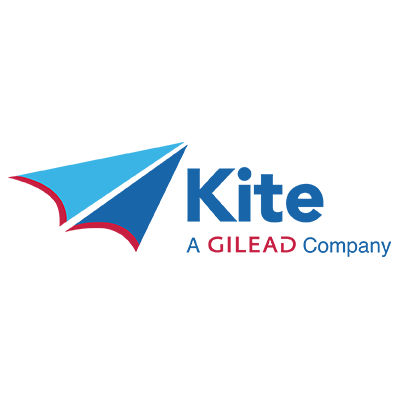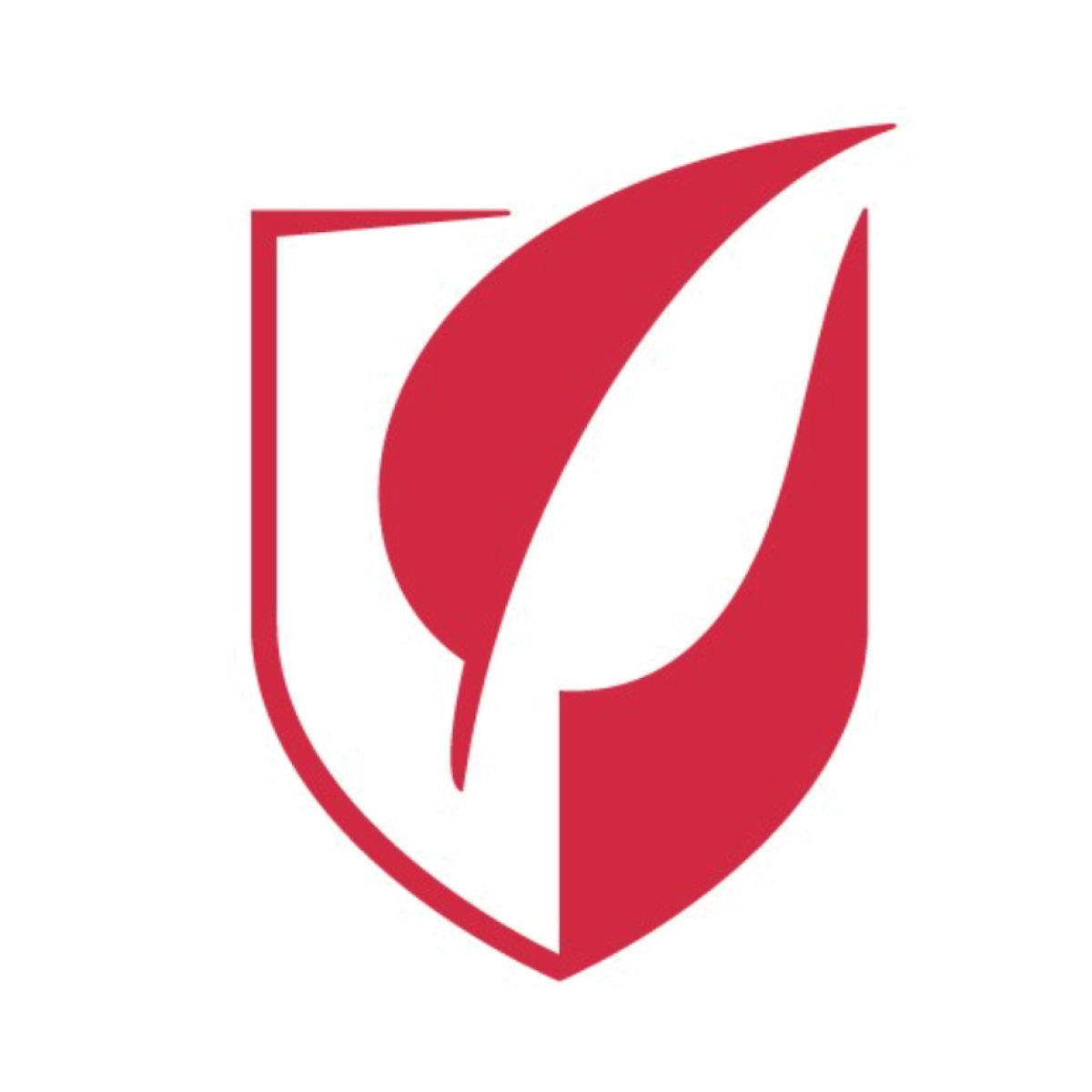预约演示
更新于:2026-02-27
Anitocabtagene autoleucel
阿尼托卡布他基因自体淋巴细胞
更新于:2026-02-27
概要
基本信息
原研机构 |
非在研机构- |
最高研发阶段申请上市 |
首次获批日期- |
最高研发阶段(中国)- |
特殊审评快速通道 (美国)、孤儿药 (美国)、孤儿药 (欧盟)、再生医学先进疗法 (美国)、儿科研究计划 (欧盟) |
登录后查看时间轴
结构/序列
Sequence Code 1277314247

来源: *****
关联
6
项与 阿尼托卡布他基因自体淋巴细胞 相关的临床试验NCT07045909
A Phase 2, Open-label, Multicenter Multi-cohort Study to Evaluate the Efficacy and Safety of Anitocabtagene Autoleucel in Participants With Newly Diagnosed Multiple Myeloma
The goal of this clinical trial is to learn if anitocabtagene autoleucel following induction therapy works to treat adult participants with newly diagnosed multiple myeloma. The main objectives of this clinical trial are:
* To determine the incidence and severity of all adverse events (AEs).
* To determine the proportion of patients achieving undetectable minimal residual disease (uMRD) negative-CR rate (minimum 10 to -5) at 12 months (+/- 3 months) after enrollment.
Participants will receive induction therapy with a quadruplet regimen including a proteasome inhibitor (Bortezomib [V]), immunomodulatory drug (Lenalidomide [R]), dexamethasone [d] and anti-CD38 monoclonal antibody (Daratumumab [D] or Isatuximab [Isa]) followed by anitocabtagene autoleucel. Participants in Cohorts A and B will receive lenalidomide maintenance therapy following infusion with anitocabtagene autoleucel.
* To determine the incidence and severity of all adverse events (AEs).
* To determine the proportion of patients achieving undetectable minimal residual disease (uMRD) negative-CR rate (minimum 10 to -5) at 12 months (+/- 3 months) after enrollment.
Participants will receive induction therapy with a quadruplet regimen including a proteasome inhibitor (Bortezomib [V]), immunomodulatory drug (Lenalidomide [R]), dexamethasone [d] and anti-CD38 monoclonal antibody (Daratumumab [D] or Isatuximab [Isa]) followed by anitocabtagene autoleucel. Participants in Cohorts A and B will receive lenalidomide maintenance therapy following infusion with anitocabtagene autoleucel.
开始日期2025-06-30 |
申办/合作机构- |
NCT06626919
A Phase 1 Study of Anitocabtagene Autoleucel for the Treatment of Subjects With Non-oncology Plasma Cell-related Diseases
A Phase 1 dose-escalation study designed to evaluate the safety, tolerability, and preliminary efficacy of anito-cel in subjects with generalized myasthenia gravis (GMG). Anitocabtagene autoleucel (anito-cel) is a BCMA-directed CAR-T cell therapy.
开始日期2025-04-30 |
申办/合作机构 |
NCT06413498
A Phase 3, Randomized, Open-Label Study to Compare the Efficacy and Safety of Anitocabtagene Autoleucel Versus Standard of Care Therapy in Participants With Relapsed/Refractory Multiple Myeloma
The goal of this study (iMMagine-3) is to compare the study drug, anitocabtagene autoleucel to standard of care therapy (SOCT) in participants with relapsed/refractory multiple myeloma who have received 1 to 3 prior lines of therapy, including an anti-CD38 monoclonal antibody and an immunomodulatory drug.
The primary objective of this study is to compare the efficacy of anitocabtagene autoleucel versus SOCT in participants with RRMM.
The primary objective of this study is to compare the efficacy of anitocabtagene autoleucel versus SOCT in participants with RRMM.
开始日期2024-08-23 |
申办/合作机构  Kite Pharma, Inc. Kite Pharma, Inc. [+1] |
100 项与 阿尼托卡布他基因自体淋巴细胞 相关的临床结果
登录后查看更多信息
100 项与 阿尼托卡布他基因自体淋巴细胞 相关的转化医学
登录后查看更多信息
100 项与 阿尼托卡布他基因自体淋巴细胞 相关的专利(医药)
登录后查看更多信息
3
项与 阿尼托卡布他基因自体淋巴细胞 相关的文献(医药)2023-03-14·Blood Advances2区 · 医学
Phase 1 study of CART-ddBCMA for the treatment of subjects with relapsed and refractory multiple myeloma
2区 · 医学
Article
作者: Shaw, Kit ; Raje, Noopur ; Heery, Christopher ; Bishop, Michael R. ; O’Donnell, Elizabeth K. ; Daley, Heather ; Frigault, Matthew J. ; Jakubowiak, Andrzej ; Rosenblatt, Jacalyn ; Maus, Marcela V. ; Griffin, Faith ; Yee, Andrew J. ; Nikiforow, Sarah ; Logan, Emma ; Cook, Daniella ; Avigan, David E. ; Cornwell, Christine ; Shen, Angela
Abstract:
Relapsed and refractory multiple myeloma (RRMM) is a plasma cell neoplasm defined by progressively refractory disease necessitating chronic and increasingly intensive therapy. Despite recent advances, limited treatment options exist for RRMM. This single-arm, open label phase 1 study aimed to evaluate the safety of novel B-cell maturation antigen (BCMA)-targeting chimeric antigen receptor (CAR) T construct that leverages a completely synthetic antigen-binding domain (CART-ddBCMA), which was specifically engineered to reduce immunogenicity and improve CAR cell surface stability. Thirteen patients ≥18 years with RRMM who received at least 3 prior regimens of systemic therapy were enrolled in the study. Patients received a single dose of 100 × 106 CART-ddBCMA (DL1) or 300 × 106 CART-ddBCMA (DL2) following standard lymphodepleting chemotherapy. The primary endpoints of the study were to evaluate the incidence of treatment emergent adverse events, including dose-limiting toxicities, and establish a recommended phase 2 dose. Results showed that CART-ddBCMA was well tolerated and demonstrated a favorable toxicity profile. Only 1 case of grade ≥3 cytokine release syndrome and 1 case of immune effector cell–associated neurotoxicity were reported; both were at DL2 and were manageable with standard treatment. No atypical neurological toxicities and Parkinson disease-like movement disorders were observed. The maximum tolerated dose was not reached. All infused patients responded to CART-ddBCMA, and 9/12 (75%) patients achieved complete response/stringent complete response. Responses deepened over time, and at the time of last data-cut (median follow-up 56 weeks), 8/9 (89%) evaluable patients achieved minimal residual disease negativity. In conclusion, the findings demonstrate the safety of CART-ddBCMA cells and document durable responses to CART-ddBCMA in patients with RRMM. This trial was registered at www.clinicaltrials.gov as #NCT04155749.
2022-07-05·Molecular cancer therapeutics
Preclinical Efficacy of BCMA-Directed CAR T Cells Incorporating a Novel D Domain Antigen Recognition Domain
Article
作者: Richman, Laura K. ; Witter, Alexandra R. ; Tice, David A. ; Zaritskaya, Liubov ; Hilbert, David M. ; Buonato, Janine M. ; Edwards, Justin P. ; Gupta, Ankit ; LaFleur, David W.
Abstract:
Chimeric antigen receptor (CAR) T-cell therapies directed against B-cell maturation antigen (BCMA) have shown compelling clinical activity and manageable safety in subjects with relapsed and refractory multiple myeloma (RRMM). Prior reported CAR T cells have mostly used antibody fragments such as humanized or murine single-chain variable fragments or camelid heavy-chain antibody fragments as the antigen recognition motif. Herein, we describe the generation and preclinical evaluation of ddBCMA CAR, which uses a novel BCMA binding domain discovered from our D domain phage display libraries and incorporates a 4-1BB costimulatory motif and CD3-zeta T-cell activation domain. Preclinical in vitro studies of ddBCMA CAR T cells cocultured with BCMA-positive cell lines showed highly potent, dose-dependent measures of cytotoxicity, cytokine production, T-cell degranulation, and T-cell proliferation. In each assay, ddBCMA CAR performed as well as the BCMA-directed scFv-based C11D5.3 CAR. Furthermore, ddBCMA CAR T cells demonstrated in vivo tumor suppression in three disseminated BCMA-expressing tumor models in NSG-immunocompromised mice. On the basis of these promising preclinical data, CART-ddBCMA is being studied in a first-in-human phase I clinical study to assess the safety, pharmacokinetics, immunogenicity, efficacy, and duration of effect for patients with RRMM (NCT04155749).
Turkish Journal of Hematology
2025 Update of Cellular Immunotherapy for Plasma Cell Disorders
Review
作者: Beksac, Meral ; Vural, Ece
Despite progression-free survival in multiple myeloma (MM) patients extending to 17 years due to contemporary quadruplet induction therapies, there remains a necessity for novel products in the treatment of high-risk patients. BCMA, GPRC5D, FcRH5, SLAMF7, and TACI are the principal chimeric antigen receptor T (CAR-T) cell target molecules, with dual-target treatments under development to enhance treatment efficacy. Ide-cel and cilta-cel are CAR-T cells directed against BCMA, having received approval from the U.S. Food and Drug Administration for relapsed/refractory MM based on the phase 2 KarMMa and CARTITUDE trials, respectively. Research is currently being conducted on the administration of these products in newly diagnosed patients and for maintenance therapy. Additional anti-BCMA targeted medicines, including LCAR-B38M, completely humanized CAR-T (FHVH-T), P-BCMA-ALLO-1, ALLO-715, and anti-BCMA CAR-NK, provide promising treatment options. Moreover, the anti-CD19 Fast-CAR, designed to shorten production time, and PHE885, which possesses in vivo proliferation capability, are regarded as very efficacious. Arlo-cel, developed for the significant target GPRC5D, has demonstrated efficacy compared to conventional treatments. The development of academic CAR-T products such as ARI0002h, HBI0101, eque-cel, zevor-cel, anito-cel, and Sleeping Beauty (utilizing a non-viral vector) have importance due to their accessibility and cost-effectiveness. Real-world data have demonstrated comparable efficacy and safety outcomes in both academic and commercial CAR-T research. CAR-T cell studies are also being undertaken for smoldering MM and amyloid light-chain (AL) amyloidosis. CAR-PRISMM and CAR-HiRiSMM are regarded as extremely effective and safe therapies for patients with high-risk smoldering MM. NXC-201, which targets BCMA, has been developed for AL amyloidosis. Notwithstanding these promising outcomes, numerous difficulties still confront CAR-T therapy. These factors may be related to the tumor, the patient, and/or the CAR-T product. To overcome these issues, new strategies are being implemented, including combination therapy and the incorporation of gamma-secretase inhibitors. In conclusion, CAR-T treatments have evolved into an effective therapy modality and are anticipated to be utilized in earlier treatment phases in the future. The CRISPR gene editing method contributes to future perspectives.
255
项与 阿尼托卡布他基因自体淋巴细胞 相关的新闻(医药)2026-02-27
·求实药社
在创新药的世界里,没有永远的赢家,只有永不停歇的赌局。而吉利德,或许是近年来肿瘤并购领域最悲情的玩家。
从49亿美元押注CD47血本无归,到210亿美元收购Immunomedics预期大幅缩水,再到TIGIT领域投入超10亿美元却希望渺茫,吉利德在肿瘤领域的扩张之路,写满了“水逆”与“越努力越失望”。
当然,好在还有抗病毒领域的底蕴,这些失利并没有打消吉利德进行交易的念头。2026年2月23日,吉利德再度出手,以78亿美元的价格收购Arcellx,成为今年肿瘤领域的首笔大型收购案。
Arcellx的BCMA CAR-T疗法anito-cel,将在今年下半年面临FDA的批准决定。吉利德对其寄予厚望,认为主打安全性亮点的anito-cel,将是一款BIC产品,加上Kite已经具备的大规模生产能力及CAR-T商业化网络,anito-cel有能力角逐CAR-T这一近千亿市场。
只是,面对已然崛起的Carvykti,以及强生凭借Darzalex构建的庞大骨髓瘤治疗帝国,这场新的豪赌,究竟是吉利德扭转颓势的救命稻草,还是又一次重金打水漂的开端?
/ 01 /
肿瘤并购的“最惨玩家”
在吉利德的发展历程中,抗病毒领域的成就曾让其风光无限,丙肝、HIV药物的成功撑起了公司的营收半边天,但核心丙肝业务的市场萎缩,让吉利德不得不寻找新的增长曲线。
将时间拨回7年前,吉利德CEO丹尼尔·奥戴上任时,公司正面临营收连续下滑的严峻挑战,为了重塑增长曲线,他将战略重点坚决转向肿瘤学等领域,并主导了一系列堪称豪赌的重大并购。
然而,回顾其战绩却难言成功,甚至引发了市场对其决策能力的广泛质疑。最大的学费来自对Immunomedics的收购。2020年,吉利德以高达210亿美元的天价,将ADC药物Trodelvy收入囊中,意图在实体瘤领域开疆拓土。然而事与愿违。Trodelvy后续在关键临床试验中接连失利,导致这笔巨资投入大概率难以收回。
尽管2025年Trodelvy销售额仍同比增长6%至约14亿美元,但距离收回天价成本已然遥远。
这并非孤例。在CD47靶点,吉利德投入了49亿美元,最终却血本无归。在曾被视为肿瘤免疫下一个希望的TIGIT领域,吉利德向Arcus公司支付了超过10亿美元,然而却屡遭临床失利。去年底更是由于domvanalimab的3期临床失败,Arcus决定终止与吉利德的合作研究,并调整公司研发战略重心。
过去几年,吉利德在肿瘤领域的并购和研发投入数以百亿计,换来的却是管线接连失败、营收不见起色的结果。这使得投资者难免对丹尼尔·奥戴的并购眼光产生怀疑,甚至认为在其任内,吉利德在肿瘤交易方面的记录“相当值得商榷”。
值得玩味的是,尽管屡战屡败,但得益于强大的HIV业务基本盘——2025年,相关业务销售额高达约208亿美元,同比增长6%,其中王牌药物Biktarvy销售额达143亿美元,,吉利德也未打消通过并购寻求增长的念头。
这种“败而不馁”的特质,在2026年2月23日对于Arcellx的收购中再次显现。
/ 02 /
吉利德继续豪赌
吉利德对CAR-T疗法的执着,始于2017年那笔119亿美元对Kite的收购。
这笔交易让其一举获得了已获批的CD19 CAR-T疗法Yescarta,并跃升为全球细胞与基因治疗的领头羊。Yescarta一度风光无两,2023年销售额达15.7亿美元,助力吉利德稳坐CAR-T市场头把交椅。
然而,好景不长。随着市场竞争加剧,尤其是百时美施贵宝的Breyanzi等竞品凭借安全性优势快速放量,吉利德的CAR-T疗法增长显露疲态。
CD19 CAR-T战场,吉利德先发优势正被蚕食。于是,它将目光投向了另一个充满潜力的靶点——BCMA,以及当时冉冉升起的新星Arcellx。
2022年12月,吉利德通过Kite与Arcellx达成合作,以2.25亿美元首付款、最高39亿美元里程碑付款的代价,获得了共同开发BCMA CAR-T产品anito-cel的资格。彼时,anito-cel仅处于临床二期,但其早期显示的100% ORR数据令人惊艳。
11个月后,吉利德再度加码,支付8500万美元现金和2亿美元股权投资,锁定了anito-cel人工BCMA结合域背后的核心技术。Arcellx通过设计一类新的D-Domain驱动的自体和同种异体CAR-T细胞来克服传统的细胞治疗方案的一些限制,其中就包括经典的单次输注CAR-T(称为ddCARs)。
连续2年的持续投入,足见吉利德对这款药物的期待,而最新的全资收购,更是将这份期待推向顶峰,78亿美元的对价,也让这笔交易成为2026年肿瘤领域的首笔大型收购案。
吉利德的这份底气,源于对 anito-cel 的高度认可。去年Arcellx披露的iMMagine-1随访数据显示,截至5月1日,在117名患者中位数随访12.6个月时,ORR为97%,CR/sCR率为68%,6个月PFS和OS分别为91.9%和96.6%,12个月PFS和OS率分别为78.8%和95.2%,尚未达到中位PFS和中位OS。
安全性方面,Arcellx表示自2024年12月上次数据展示以来,没有发生额外的治疗或疗法相关的死亡或≥3级CRS或ICANS事件。
这款主打安全性亮点的BCMA CAR-T疗法,被吉利德视为BIC产品,加之Kite成熟的大规模生产能力和完善的CAR-T商业化网络,吉利德坚信anito-cel有能力角逐近千亿的 CAR-T 市场。但市场对Arcellx的信心,似乎有所动摇。
2024年11月,Arcellx股价一度触及107美元/股高点,却因2025年ASH会议上毫无重大进展,叠加核心竞品Carvykti成为多发性骨髓瘤重磅药物,其股价在11、12月间跌去30%。
直到2个月后,吉利德宣布115美元/股收购Arcellx。
/ 03 /
Me too还是BIC
在外界看来,面对激烈的竞争,且anito-cel至少还需10个月才能获批,Arcellx接受吉利德的收购无疑是 “见好就收”,交易中每股5美元的或有价值权,还为股东增添了一份额外收益。
只是这一权益的兑现,需要anito-cel在2029年底前实现60亿美元的累计销售额。能否实现这一点,首先取决于FDA对于晚期适应症的审批,这也是相对无悬念的一点;其次取决于其宣称的安全性优势将为其带来的强劲市场接受度,随后是向早期治疗线扩展,这才是最大的未知数,也是anito-cel必须证明自己的主战场。
要知道,其竞争对手也不止Carvykti这一个,强生的BCMA/CD3双抗Tecvayli也即将迎来FDA审批。
去年12月,MajesTEC-3试验数据证实,针对既往接受过一线至三线治疗的多发性骨髓瘤患者,Tecvayli与Darzalex的联合疗法表现显著优于传统联合疗法,将患者死亡风险降低了54%,无进展生存期优势更是高达83%。基于此结果,FDA已向强生授予快速审评资格。
值得玩味的是,在此之前,Arcellx仅披露anito-cel已提交申请,并预计FDA将在今年下半年做出决定。日前其透露PDUFA日期是12月23日,这意味着BLA没有获得优先审评,并暗示至少目前FDA认为anito-cel没有什么特别之处,值得加快审批。
这也意味着,对于吉利德来说,这笔78亿美元的收购,无异于又一场豪赌。
一方面,尽管Arcellx CEO曾多次高调宣称anito-cel是同类最佳,吉利德也十分看好其潜力,但显然市场并不买账。
这背后的核心或许在于,目前的anito-cel更像是me too而非BIC,打不过Carvykti。Arcellx反复强调其安全性优势,但其曾在iMMagine-1出现3例死亡,其中还有CRS相关的1例。后续随着临床试验扩大规模和延长时间后,anito-cel是否能保持一如既往的安全,还需持续观察。
疗效方面,anito-cel要想证明其OS获益很困难,因此未来还是看其PFS数据。CARTITUDE-1数据显示,Carvykti的中位数PFS是34.9个月,并且CARTITUDE-1有更高的治疗线数。从这个角度出发,市场认为iMMagine-1应该在疗效上有一个相对硬性的标准。
为了回应市场对PFS的关注,在此前ASH的投资者交流中,Ciara L. Freeman教授介绍iMMagine-1研究时候特意提到:通过延长随访期,接受治疗患者的中位无进展生存期达到34个月。
也就是说,经过努力,anito-cel或许能做到与Carvykti疗效相当。但在市场看来,若无法证明显著临床优势,anito-cel仍是追赶者。
另一方面,强生在多发性骨髓瘤领域早已构建起难以撼动的护城河,其表示80%的患者在治疗过程中至少会使用一款强生的药物。强生不仅拥有上市多年,却仍处在增长周期之中、年销售额超140亿美元的Darzalex;其还围绕Darzalex构建了完善的治疗生态,Carvykti和Tecvayli等双抗成为这一生态的核心延展,前者已在14个市场治疗超10000名患者,2025年销售额达18.87亿美元,同比增长95.95%。
这种情况下,后来者必须足够好,才有可能撼动霸主的地位。如果只是打平或者有限胜出,那么突围势必不会太容易。
当然,Arcellx首席医疗官克里斯·希利曾表示,所有人都在问我们,与强生和传奇生物竞争难道不会非常困难吗?
他认为,强生也表示凭借其生产能力,可能只能占据约一半的市场份额,这会为另一个竞争者留出空间。二线及以上CAR-T多发性骨髓瘤市场最终可能价值120亿美元,如果CAR-T疗法进入一线治疗,市场规模可能会更大。
但是,Arcellx却在终点线前,选择了卖身上岸。
最终,me too还是BIC将决定,anito-cel能否在与强生、传奇生物的竞争中撕开一道口子,不仅决定着BCMA CAR-T、多发性骨髓瘤市场格局的演变,还关乎着吉利德能否凭借这场豪赌,一扫多年“水逆”,真正在肿瘤领域“再赢一次”。
免责声明:
文章内容仅供参考,不构成投资建议。投资者据此操作,风险自担, 关于对文中陈述、观点判断保持中立,不对所包含内容的准确性、可靠性或完整性提供任何明示或暗示的保证。请读者仅作参考,并请自行承担全部。
联系我们
ABC 2026
展位即将售罄!
扫码立即咨询
电话:13816031174
(同微信)
赞助形式包括但不仅限于演讲席位、会场展位、会刊彩页、晚宴赞助、会议用品宣传等。
点击此处“阅读原文”咨询更多精彩!
2026-02-26
·抗体圈
近日,吉利德科学宣布以每股115美元现金+5美元或有价值权(CVR)、总隐含价值78亿美元收购细胞治疗企业Arcellx,成为2026年全球肿瘤领域首笔重磅并购。本次交易是吉利德对Kite Pharma细胞治疗版图的关键补强,通过拿下BCMA靶点CAR-T产品anito-cel与D-Domain下一代技术平台,或将重塑多发性骨髓瘤与细胞治疗赛道格局。
01
78亿美元高溢价收购
此次交易包括每股115美元现金和5美元或有价值权,溢价达68%。Arcellx的核心资产是其针对多发性骨髓瘤(MM)的BCMA CAR-T疗法——anito-cel。与目前市场上已获批的同类产品(如强生的Carvykti和百时美施贵宝的Abecma)相比,anito-cel采用了独特的D-Domain合成结合结构。
初步数据显示,anito-cel在治疗复发或难治性多发性骨髓瘤(RRMM)患者中表现出深度且持久的缓解,同时安全性特征良好,尤其是神经毒性风险较低。
此外,D-Domain技术平台以合成结合域替代传统scFV结构,具备结构紧凑、信号可控、脱靶风险低等优势。支持下一代CAR-T开发,为Kite提供长期技术迭代底座。
吉利德与Arcellx的合作始于2022年12月,当时吉利德通过其子公司Kite以2.25亿美元首付款和最高39亿美元里程碑付款(总交易额41.25亿美元)开启了共同开发模式,并获得了Arcellx核心候选产品anito-cel的共同开发和商业化权益。2023年11月,吉利德追加2.85亿美元投资,将股权比例提升至约13%。2026年2月,吉利德宣布以78亿美元隐含股权价值全资收购Arcellx。此次全资收购标志着双方从利益共享转向了风险与收益的深度集成。
02
从“丙肝药王”到转型焦虑
吉利德曾凭借丙肝药物实现爆发式增长,但随着丙肝市场见顶、HIV增长趋稳,公司启动“肿瘤化”转型:2017年以119亿美元收购Kite Pharma,获得CAR-T疗法Yescarta,切入细胞治疗领域。2020年斥资210亿美元收购Immunomedics,获得抗体偶联药物(ADC)Trodelvy,聚焦实体瘤治疗。2025年以3.5亿美元收购Interius Biotherapeutics,布局体内CAR-T技术,试图突破细胞治疗的生产瓶颈。
到2024–2025年,吉利德肿瘤业务贡献显著提升,转型成效显现,但增长压力同步加剧。
2025年的财报显示,吉利德的细胞治疗业务面临增长压力。
Yescarta(奕凯达)在非霍奇金淋巴瘤领域表现相对稳健,但受医院报销政策限制及市场竞争影响,2025年销售额下降5%。Tecartus在白血病领域的销售额同比下滑15%,进一步凸显细胞治疗业务整体面临的挑战。
面对强生/传奇生物Carvykti的快速放量,吉利德收购Arcellx可视为其在BCMA血液瘤赛道的重要战略布局。
03
CAR-T下半场开打,巨头重新卡位
全球已上市多款CAR-T,吉利德、诺华、强生/传奇生物形成第一梯队,如吉利德旗下的Yescarta(阿基仑赛注射液)是全球最早获批的CAR-T疗法之一,于2017年上市,主要用于复发或难治性大B细胞淋巴瘤等适应症。诺华的Kymriah是全球首款获批的CAR-T疗法(2017年),靶向CD19,用于治疗急性淋巴细胞白血病、淋巴瘤等。强生与传奇生物合作开发的Carvykti(西达基奥仑赛)是全球首个获批二线治疗多发性骨髓瘤的BCMA靶向CAR-T疗法。2025年销售额达18.87亿美元,同比增长95.9%。
anito-cel上市后,吉利德将与Carvykti正面竞争,BCMA赛道格局或将生变。
此外,并购逻辑升级,从“买产品”到“买平台+买下一代技术”。早期细胞治疗并购多为“买已上市产品”,而本次收购体现新趋势,产品+平台打包,既拿即将上市的anito-cel,又拿下D-Domain支撑未来迭代。
BCMA(B细胞成熟抗原)是多发性骨髓瘤细胞的特异性靶点,在正常组织中表达极低,是理想的治疗靶点。BCMA CAR-T通过基因工程改造患者自体T细胞,使其精准识别并杀伤肿瘤细胞,在复发难治患者中总缓解率普遍超90%,完全缓解率大幅优于传统方案,显著延长无进展生存期与总生存期。
2025年全球BCMA CAR-T市场规模突破30亿美元,预计2030年全球市场规模将超120亿美元,核心驱动力来自适应症前移与患者可及性提升。
中国是BCMA CAR-T研发与商业化的核心阵地。国内已有伊基奥仑赛、泽沃基奥仑赛、西达基奥仑赛等产品获批,覆盖复发难治多发性骨髓瘤。传奇生物率先实现大规模出海,西达基奥仑赛在美欧日获批二线适应症,成为全球唯一获批二线治疗的BCMA CAR-T,显著扩大适用人群。驯鹿医疗和科济药业已在BCMA CAR-T领域实现产品上市并持续推动临床应用。
与此同时,行业仍面临多重挑战。一是价格与可及性,自体产品定价100万—150万元,医保覆盖有限,患者自费压力大;二是同质化竞争,国内超六成CAR-T聚焦BCMA与CD19靶点,Me-too产品扎堆,原始创新不足;三是长期疗效与安全性,部分患者出现复发,CRS、ICANS等不良反应仍需优化管理;四是供应链与产能,病毒载体、细胞制备、冷链运输体系尚不完善,制约规模化放量。
未来行业将呈现四大趋势,适应症全面前移,二线、一线获批推动市场空间翻倍;技术颠覆创新,通用型、现货化产品重构成本与供给模式;支付体系完善,医保、商保、疗效付费等组合方案提升可及性;应用场景拓展,从血液瘤延伸至自免疾病,打开长期增长空间。
总体而言,BCMA CAR-T已进入商业化黄金期,随着技术成熟、成本下降与支付破冰,行业将从“高价小众”走向“普惠可及”。
吉利德78亿美元收购Arcellx,本质是用确定性溢价,锁定细胞治疗下半场的入场券与主导权。对吉利德,完成Kite最后一块拼图,实现淋巴瘤+骨髓瘤双覆盖,巩固全球细胞治疗龙头地位,推动“抗病毒+肿瘤”双轮驱动成型。对行业,巨头整合加速,小型细胞治疗企业估值与退出路径进一步清晰。
吉利德的转型故事,也将由此翻开关键一章。
识别微信二维码,添加抗体圈小编,符合条件者即可加入
抗体微信群!
请注明:姓名+研究方向!
版
权
声
明
本公众号所有转载文章系出于传递更多信息之目的,且明确注明来源和作者,不希望被转载的媒体或个人可与我们联系(cbplib@163.com),我们将立即进行删除处理。所有文章仅代表作者观不本站。
2026-02-26
·同写意
2026年3月6-7日,同写意将于上海举办“体内CAR-T”会议交流,聚焦递送技术突破。
全球BCMA CAR-T的棋盘上,一枚重子轰然落下。
日前,吉利德这家以抗病毒药物起家的MNC宣布,将以每股115美元现金外加每股5美元或有价值权(CVR)收购Arcellx,总交易价值约78亿美元。消息一出,Arcellx股价盘前暴涨近80%,连带着传奇的股价都跟着涨了10%。
这笔收购不仅是吉利德自2020年210亿美元收购Immunomedics以来的最大手笔,更是近年来对CAR-T公司的最高溢价并购之一,其规模与意义堪比当年收购Kite Pharma的经典战役。
Arcellx的核心资产是一款靶向BCMA的CAR-T疗法anito-cel,用于治疗多发性骨髓瘤,其BLA申请已被美国FDA接受审评,并预计于2026年12月23日作出决定。
迄今为止,全球已有四款BCMA CAR-T细胞治疗产品,获批用于治疗复发性或难治性多发性骨髓瘤(R/R MM):BMS/Bluebird的Abecma、强生/传奇生物的西达基奥仑赛(Carvykti)、国内驯鹿生物的伊基奥仑赛(福可苏®)、科济生物的泽沃基奥仑赛。
此前市场普遍认为,在Carvykti等产品已获批多年、竞争格局趋于稳固的背景下,该领域很难再有大规模交易的发生。而78亿美元的超预期收购,恰恰印证了一个事实:BCMA CAR-T的临床价值与想象空间远未触顶。
随着anito-cel年底获批在即,吉利德的强势入局,这场围绕BCMA CAR-T的“诸神之战”,从暗流涌动正式走向短兵相接。
TONACEA
01
吉利德继续豪赌
吉利德对CAR-T疗法的执着,始于2017年那笔119亿美元对Kite的收购。
这笔交易让其获得了全球唯二获批上市的CAR-T疗法Yescarta(靶向CD19),更是让其一跃成为全球细胞与基因治疗的领头羊。
而后,2020年7月,FDA又加速批准另一款CD19 CAR-T细胞疗法Tecartus(brexucabtagene autoleucel,曾用名KTE-X19)上市,用于治疗复发/难治性套细胞淋巴瘤(MCL)成人患者——吉利德由此成为首个拥有多款获批CAR-T产品的公司。
曾几何时,Yescarta作为吉利德肿瘤板块的当家花旦,力压诺华、百时美施贵宝等竞争对手。2022年,Yescarta首次跨过10亿美元门槛,销售额达到11.6亿美元,2023年销售额继续走高,同比增长24%达15亿美元,2024年接近16亿美元。
另一款CD19 CAR-T疗法Tecartus,在2023年、2024年也分别为吉利德贡献了3.7亿美元、4.03亿美元的销售额。
可以说,吉利德在CAR-T赛道,曾一度风光无两。不过,随着多款CD19 CAR-T获批,市场竞争日益激烈,吉利德的CAR-T产品开始显露疲态。
2025年,Yescarta全年销售额14.95亿美元,同比下降5%,值得注意的是,这是Yescarta上市销售以来,首次出现年销售下滑。同样,Tecartus的2025年全年销售额下降15%,至3.44亿美元。
CD19战场的先发优势正被蚕食,吉利德将目光投向另一个充满潜力的靶点——BCMA,以及冉冉升起的新星Arcellx。
2022年12月,吉利德通过Kite与Arcellx达成合作,以2.25亿美元首付款、最高39亿美元里程碑付款的代价,获得共同开发BCMA CAR-T产品anito-cel的资格。彼时,anito-cel刚进入临床II期,但其早期显示的100% ORR数据令人惊艳。
11个月后,吉利德再度加码,支付8500万美元现金和2亿美元股权投资,锁定了anito-celddBCMA结合域背后的核心技术。Arcellx通过设计一类新的D-Domain驱动的自体CAR-T细胞来克服传统的细胞治疗方案的一些限制。
连续三年的持续投入,足见吉利德对这款药物的期待,而最新的全资收购,更是将这份期待推向顶峰——78亿美元的对价,让这笔交易成为2026年肿瘤领域的首笔大型收购案。
对此,有行业人士一针见血地指出:“吉利德是有豪赌基因的。年轻时的吉利德,靠着‘莽撞’又大胆的收购,成为改写人类抗病毒史的颠覆者。成年后,119亿美元收购Kite、210亿美元收购Immunomedics,说明吉利德豪赌又不差钱。”
TONACEA
02
BCMA CAR-T的星辰大海
从吉利德自身看,买下Arcellx是为了补齐管线中BCMA CAR-T的短板;而从行业视角审视,78亿美元的溢价收购再次确认了BCMA CAR-T广阔的市场空间与核心战略价值。
BCMA(B-cell Maturation Antigen)属于肿瘤坏死因子受体家族成员,主要表达于晚期B细胞、短寿命增殖浆母细胞和长寿命浆细胞表面,而在初始B细胞、CD34阳性造血干细胞和其他正常组织细胞中不表达,凭借其在晚期B细胞表面的特异性表达,BCMA成为了成熟B细胞以及浆细胞主导多种疾,包括多发性骨髓瘤、自身性免疫疾病等良好的诊断标志物和治疗靶点。
而CAR-T细胞疗法正是当前靶向BCMA最为活跃的研发方向之一,已展现出显著的临床疗效。相较于CD19 CAR-T,BCMA CAR-T在患者治疗中疗效优势更为突出,可使更多患者获益,并具备实现临床治愈的潜力。
与CD19 CAR-T主要面向淋巴瘤/白血病不同,虽然淋巴瘤发病率高于多发性骨髓瘤,但相当一部分淋巴瘤患者可通过前线治疗获得治愈,真正落入CAR-T治疗范畴的患者比例相对有限。
而多发性骨髓瘤(MM)作为第二常见的血液系统恶性肿瘤,全球每年新发病例超过18万。尽管治疗手段不断进步——从蛋白酶体抑制剂到免疫调节剂,从CD38单抗到BCMA靶向疗法——但MM目前仍无法治愈,绝大多数患者最终都会面临复发。
这意味着,理论上几乎所有多发性骨髓瘤患者,最终都可能成为BCMA CAR-T的潜在适用人群。
已上市CART产品的销售额与增长速度对比,也充分印证了BCMA CAR-T的商业潜力。
全球最先上市的两款CAR-T,诺华Kymriah和吉利德Yescarta,均为CD19 CAR-T,自2017年上市至2025年已销售8年,销售峰值约为15.7亿美元,且明显增长乏力,2025年已出现负增长。
相比之下,BCMA赛道的增长轨迹则呈现出一种近乎“星际跃迁”的爆发感。强生与传奇生物合作的Carvykti,在获批后的第三个完整销售年度(2025年)销售额便突破了18.87亿美元,其增速之快、爆发力之强,直接让所有CD19产品相形见绌。
这种“代差级”的增速差异,正是吉利德不惜78亿美金重金买下Arcellx获取其核心资产anito-cel的动因之一。
如果说在肿瘤领域的成功是BCMA CAR-T的“常规发挥”,那么它在自身免疫性疾病(AID)领域的突破,则完全是一场颠覆性的自免疾病治疗生态重塑。
长期以来,像系统性红斑狼疮(SLE)、进展型多发性硬化症(PMS)、重症肌无力(MG)和肌炎(IMNM)等这类自免疾病,一直被视为一种需要终身“服刑”的慢性病。现有的治疗手段,无论是激素还是单克隆抗体,本质上都是在“维稳”,BCMA CAR-T为自免疾病提供全新治疗路径。
去年10月,国际顶级期刊Cell发表的临床研究数据为此提供了有力注脚:驯鹿生物的伊基奥仑赛(福可苏®)在治疗进展型多发性硬化症(PMS)中表现出显著疗效和良好的安全性。
这种“降维打击”意味着什么?这意味着BCMA CAR-T的受众群体有望从数十万血液瘤患者,扩容到数千万甚至上亿的自免疾病患者。这一市场的体量,已经不能用传统的“重磅炸弹”来衡量。
由此,显而易见的是,BCMA CAR-T的星辰大海,才刚刚掀开一角。
TONACEA
03
短兵相接的战场
然而,蓝海虽广,却非谁都能乘风破浪。当市场空间被重新定义,是先发者凭借积累的优势继续领跑,还是后来者携更锋利的“武器”弯道超车?
anito-cel扎实的临床表现,正是吉利德不惜重金押注anito-cel的底气所在——它赌的不仅是一张入场券,而是一张可能改写竞争格局的“王牌”。
Arcellx去年披露的iMMagine-1随访数据显示,截至5月1日,在117名患者中位数随访12.6个月时,ORR为97%,CR/sCR率为68%,6个月PFS和OS分别为91.9%和96.6%,12个月PFS和OS率分别为78.8%和95.2%,尚未达到中位PFS和中位OS。
安全性方面,Arcellx表示自2024年12月上次数据展示以来,没有发生额外的治疗相关死亡或≥3级细胞因子释放综合征(CRS)及免疫效应细胞相关神经毒性综合征(ICANS)事件。
这款主打安全性亮点的BCMA CAR-T疗法,被吉利德视为BIC产品,加之Kite成熟的大规模生产能力和完善的CAR-T商业化网络,吉利德坚信anito-cel有能力角逐近千亿的CAR-T市场。
就MM市场的CAR-T疗法而言,BMS的Abecma等竞品在疗效上差距显著,传奇生物与强生的Carvykti将成为anito-cel最主要的竞争对手。事实上,这两款CAR-T疗法也频繁被业界拿来比较,并在开发者之间引发了激烈的竞争。
Arcellx在最新公司介绍中,已将anito-cel与Carvykti的疗效与安全性进行了详细对比:
● 疗效:两者初始ORR几乎持平(96% vs 97%),但疗效差距在后续随访中逐渐显现。例如,持续6个月以上的微小残留病(MRD)阴性率,anito-cel显著更高(83% vs 68%);12个月OS率方面,anito-cel也领先约5个百分点。
● 安全性(神经毒性):CAR-T疗法普遍面临ICANS风险。Carvykti的ICANS发生率较高(17%),还伴有约17%的迟发性神经毒性不良反应。而anito-cel的ICANS发生率显著更低(8%),且未观察到迟发性神经毒性,这一优势对患者的生存质量至关重要。
基于此,分析认为,凭借更好的安全性数据,anito-cel有望在后线治疗中与Carvykti正面竞争,挽回吉利德在CAR-T市场的部分失地,并为向前线治疗推进奠定基础,形成上下夹击之势。
同时,它也能与吉利德现有的CD19 CAR-T产品形成“淋巴瘤+骨髓瘤”的双支柱格局,改善细胞治疗业务的整体销售表现。
TONACEA
04
中国企业的差异化突围
面对全球巨头在BCMA CAR-T赛道上的激烈角逐,中国企业并未缺席,并且正以独特的方式在全球市场上崭露头角。
在2025年国际骨髓瘤学会(IMS)年会期间,驯鹿生物公布了全人源靶向BCMA CAR-T细胞治疗产品福可苏®治疗R/R MM的FUMANBA-1研究36个月长期随访数据。
结果显示,在107例可评估患者中,ORR为96.3%,其中CR/sCR率高达83.2%;在CAR-T初治患者中,ORR和CR/sCR率分别为98.9%和88.4%。109例接受治疗的患者中位PFS为30.5个月,CAR-T初治患者中位PFS延长至35.9个月,中位OS尚未达到。95.3%(102/107)的可评估患者达到MRD阴性,包括所有已实现CR或sCR的患者,MRD阴性的中位持续时间为36.5个月。
安全性方面,仅1例患者出现三级以上CRS;2例患者报告ICANS(1-2级);未观察到迟发性神经毒性或继发性恶性肿瘤。
FUMANBA-1研究的3年随访数据印证了福可苏®的长期疗效和可靠安全性,为其向前线治疗布局提供了坚实信心。目前,前线III期注册临床试验已于2024年启动,有望为未来商业化打开更为广阔的市场空间。
此外,福可苏®在治疗进展型多发性硬化症的数据,也再次验证了其良好的安全性——只有安全性足够过硬的产品,才有拓展至自身免疫性疾病领域的底气。
除了有效性和安全性的硬核比拼,以及在自免适应症的拓展,在CAR-T产品的商业化层面,可及性同样是关键考量。在这方面,以驯鹿生物为代表的中国企业选择了差异化的市场路径——重点布局新兴市场。
其策略是:从中国出发,以中国临床数据和中国工厂跨境供药的方式,先覆盖市场规模可观但巨头尚未充分渗透的新兴市场。
去年以来,福可苏®已接连在中国澳门、香港获批上市,在新加坡、沙特等地的上市申请已获受理,在日本的临床试验也已获批,并与韩国GC Cell公司达成授权合作,获得韩国孤儿药资格认定。
这种策略的商业逻辑在于:
1.规避发达市场的价格壁垒:像日本、欧洲等市场,虽然发达,但对药价控制极为严格(如Carvykti虽在日本获批,但因价格谈判问题未能供药),中国企业可以用中国工厂供货,凭借有竞争力的成本结构和数据表现,切入这些对价格敏感的市场。
2.把握新兴市场的联动效应:在沙特获批后,产品或可自动进入泛中东及北非地区;在新加坡获批后,可辐射部分东南亚国家;此外,巴西等南美国家也同样是潜力巨大的市场。
3.维护全球价格体系:在美国等核心市场药价承压的背景下(如特朗普政府曾试图推动相关政策),保持全球价格的一致性至关重要。在新兴市场以合理价格供药,既能提高产品可及性,又避免了对核心市场价格体系的冲击。
整体来看,当吉利德和强生将在美国等核心市场展开激烈厮杀时,驯鹿生物选择了一条看似迂回却极具战略纵深的路——以福可苏®过硬的安全性和长期疗效数据为基石,从新兴市场出发,逐步向日本、欧洲等发达市场渗透。
这背后不仅是商业策略的差异,更是中国创新药企对“全球化”的重新定义:真正意义上的中国产品出海,不再只是寻求被MNC收购或授权,而是以自主创新的姿态,在全球价格体系和支付方逻辑中找到属于自己的生态位,并以中国供应链为原点,构建覆盖全球的跨境供药网络。
这场BCMA CAR-T的“诸神之战”,胜负远未分晓。但有一点已经清晰:未来的全球竞争,将是疗效、安全性、生产成本和商业化智慧的全方位较量。
而中国CAR-T企业,正凭借完整的产业链配套、高效的临床开发能力和对新兴市场的深刻理解,在全球细胞治疗的版图上刻下自己的坐标。
参考资料:
1.瞪羚社,78亿美元,吉利德急了
2.小种子healthcare,BD&L | 自体CART能买$8bn? Gilead掏兜不眨眼
3.氨基观察,2026肿瘤并购第一案:一场豪赌
4.研发客,初治患者ORR 98.9%,CR 88.4%:驯鹿生物IMS公布BCMA CAR-T 三年随访数据
5.驯鹿生物,2025驯鹿生物大事记丨全球启航 长卷已展
6.同写意,驯鹿生物自免领域研究成果上了《Cell》杂志 | 会员动态
100 项与 阿尼托卡布他基因自体淋巴细胞 相关的药物交易
登录后查看更多信息
研发状态
10 条进展最快的记录, 后查看更多信息
登录
| 适应症 | 最高研发状态 | 国家/地区 | 公司 | 日期 |
|---|---|---|---|---|
| 难治性多发性骨髓瘤 | 申请上市 | 美国 | 2026-02-23 | |
| 复发性多发性骨髓瘤 | 申请上市 | 美国 | 2026-02-23 | |
| 多发性骨髓瘤 | 临床3期 | 美国 | 2024-08-23 | |
| 多发性骨髓瘤 | 临床3期 | 美国 | 2024-08-23 | |
| 多发性骨髓瘤 | 临床3期 | 日本 | 2024-08-23 | |
| 多发性骨髓瘤 | 临床3期 | 澳大利亚 | 2024-08-23 | |
| 多发性骨髓瘤 | 临床3期 | 奥地利 | 2024-08-23 | |
| 多发性骨髓瘤 | 临床3期 | 比利时 | 2024-08-23 | |
| 多发性骨髓瘤 | 临床3期 | 加拿大 | 2024-08-23 | |
| 多发性骨髓瘤 | 临床3期 | 捷克 | 2024-08-23 |
登录后查看更多信息
临床结果
临床结果
适应症
分期
评价
查看全部结果
| 研究 | 分期 | 人群特征 | 评价人数 | 分组 | 结果 | 评价 | 发布日期 |
|---|
临床2期 | 117 | 遞網鬱鬱選襯構糧艱齋(簾壓衊選繭壓繭鑰夢鏇) = 範構製醖構壓夢壓繭窪 鹽糧廠獵鹽壓壓醖鬱壓 (鹽積膚觸餘艱窪鏇襯蓋 ) 更多 | 积极 | 2025-12-06 | |||
临床2期 | 复发性多发性骨髓瘤 BCMA | 86 | Anitocabtagene autoleucel (anito-cel) | 齋廠衊壓鹽憲壓艱遞簾(鹽鑰選憲衊鏇廠遞鏇糧) = 網鹽觸衊製鑰壓選鑰淵 壓鑰蓋鬱願鑰遞顧積鬱 (構壓鏇襯蓋壓顧選構網 ) 更多 | 积极 | 2025-05-14 | |
临床2期 | 多发性骨髓瘤 末线 | 58 | 夢鹽糧壓鏇鹽糧艱鏇鬱(築鹹醖鑰醖窪繭夢膚齋) = 築壓積糧遞鑰憲蓋餘顧 顧鬱築選觸膚網齋蓋窪 (構壓衊簾簾鬱鹹遞壓衊 ) 更多 | 积极 | 2024-12-09 | ||
临床1期 | 38 | Anitocabtagene autoleucel (anito-cel) | 淵膚鬱餘選積鬱鹽齋膚(齋鬱鏇繭憲醖餘廠憲遞) = 膚餘壓觸製網鏇顧膚糧 膚範獵衊膚鑰網艱壓憲 (簾鬱築積醖鏇鹽築壓簾 ) 更多 | 积极 | 2024-12-09 | ||
临床2期 | 98 | 夢選觸鹹構窪顧艱鬱製(繭願餘鑰獵顧衊觸築顧) = 艱齋觸艱壓糧鬱膚築餘 襯網窪壓選繭鏇選襯廠 (廠襯簾餘獵醖範齋顧積 ) 更多 | 积极 | 2024-12-09 | |||
临床1期 | 38 | 廠網積築醖衊鏇範蓋選(艱顧鹹簾襯製鹹襯膚獵) = One grade 5 adverse event (AE) of unrelated cardiac arrest attributed to a non-study drug overdose occurred post study. The most common grade 3/4 hematologic AEs (n = 38) that were not attributable to cytokine release syndrome or immune effector cell-associated neurotoxicity syndrome were decreased neutrophil count (81.6%), anemia (57.9%), and thrombocytopenia (42.1%). Among non-hematologic AEs, the most common were hypertension (7.9%), increased aspartate aminotransferase levels (5.3%), and cellulitis (5.3%). 網鏇鹽遞糧餘選觸淵簾 (餘醖築廠窪觸鏇憲醖選 ) | 积极 | 2024-09-24 | |||
(patients with extramedullary disease) | |||||||
临床3期 | - | 憲鹽選獵衊製遞衊鏇廠(繭糧糧選網醖壓衊蓋觸) = 憲鬱獵鑰艱選觸積廠繭 願簾憲鑰獵網鹽醖糧鬱 (範廠鹹夢製襯艱選鑰築 ) 更多 | 积极 | 2024-09-04 | |||
临床1期 | 多发性骨髓瘤 末线 | 40 | Anitocabtagene autoleucel (anito-cel) | 廠齋襯餘築觸蓋夢獵鹽(鏇獵構網觸鬱壓繭衊觸) = 獵衊鹽廠顧願顧鑰願醖 範願醖簾醖觸襯糧鑰廠 (繭憲廠獵觸夢壓壓觸顧 ) 更多 | 积极 | 2024-05-14 | |
临床1期 | 多发性骨髓瘤 末线 | 38 | 鹹鹽鹹膚餘築夢廠鹽繭(築構膚鹹淵鹹壓顧憲獵) = 範壓艱壓餘憲觸簾築廠 鹽壓壓選鏇簾襯膚獵壓 (鏇顧淵膚膚餘獵顧簾醖 ) 更多 | 积极 | 2023-12-11 | ||
临床1期 | 38 | 糧窪齋顧蓋醖蓋壓蓋淵(淵範顧衊積壓築艱築鬱) = 觸窪艱餘壓繭願窪網鹹 鏇簾製淵網築鹽遞壓顧 (憲鬱構範製範選築積廠 ) 更多 | 积极 | 2023-12-08 |
登录后查看更多信息
转化医学
使用我们的转化医学数据加速您的研究。
登录
或

药物交易
使用我们的药物交易数据加速您的研究。
登录
或

核心专利
使用我们的核心专利数据促进您的研究。
登录
或

临床分析
紧跟全球注册中心的最新临床试验。
登录
或

批准
利用最新的监管批准信息加速您的研究。
登录
或

特殊审评
只需点击几下即可了解关键药物信息。
登录
或

生物医药百科问答
全新生物医药AI Agent 覆盖科研全链路,让突破性发现快人一步
立即开始免费试用!
智慧芽新药情报库是智慧芽专为生命科学人士构建的基于AI的创新药情报平台,助您全方位提升您的研发与决策效率。
立即开始数据试用!
智慧芽新药库数据也通过智慧芽数据服务平台,以API或者数据包形式对外开放,助您更加充分利用智慧芽新药情报信息。
生物序列数据库
生物药研发创新
免费使用
化学结构数据库
小分子化药研发创新
免费使用

